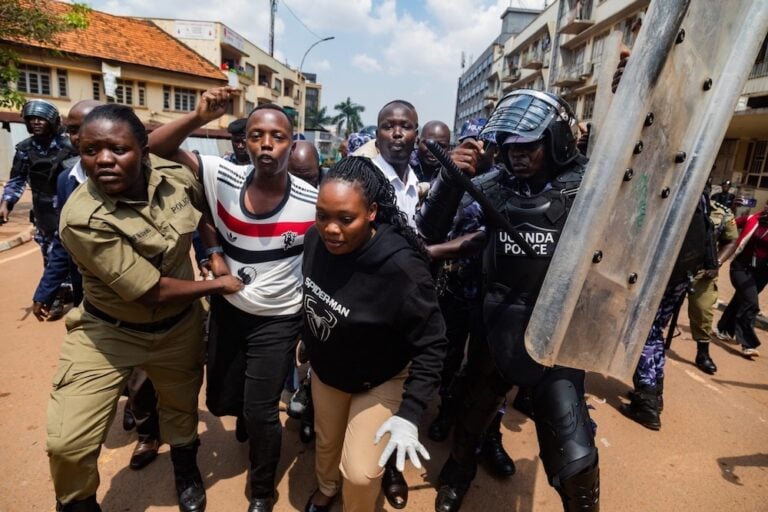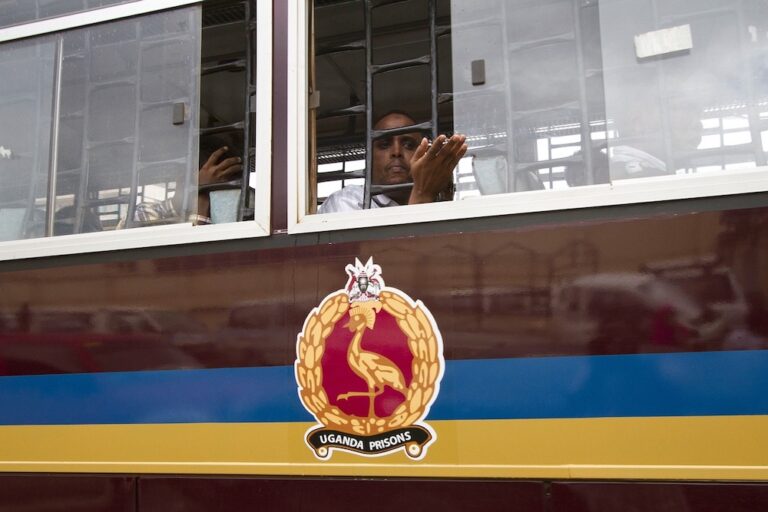If the resolution is passed it will automatically become a by-law under which journalists could be arrested and prosecuted for trespassing.
(HRNJ-Uganda/IFEX) – Plans are under way for the Kalangala district leadership to pass a resolution which would ban media activities in the district. Kalangala district is found on the shores of Lake Victoria. At the district executive meeting held on 6 September 2011 at Kalangala district offices, the district leadership, headed by Chairperson Willy Lugoloobi, resolved that a draft resolution will be presented before the council is expected to meet later in September. The council is expected to pass the resolution.
If the council passes the resolution it will automatically become a by-law, under which journalists could be arrested and prosecuted for trespassing if they are found to be working in the district.
Under the decentralization system which was introduced in late 1990s in Uganda, each district has its own government which creates its own laws.
The issue over journalism in Kalangala stems from a story aired on radio on 27 August 2011 which reported that the district was allegedly claiming Buganda Kingdom land and that it had destroyed the Kingdom’s model garden to construct the district headquarters.
Since 2006, the district has been struggling to find space to construct offices after receiving nearly 2 billion shillings (approx. US$718,600) from development partners. In 2009, the National Forest Authority (NFA) allegedly blocked the district from encroaching on one of the forests in the area.
HRNJ-Uganda contacted Mr. Lugoloobi, who said, “We do not have problems with journalists in the district or those in other parts of Uganda but only that one [journalist] who reported the story and refused to change it after I called him.”
Another story aired on radio in July 2011 about an expectant mother who died with her unborn baby in a lodge, after being chased away by a medical worker from the Kalangala Health Center IV.
“We do not condone the unethical behavior of some journalists but we are opposed to the step taken by the district administration because it will not solve the problem, rather worsening it by denying people information which concerns them,” said HRNJ-Uganda Programmes Coordinator Geoffrey Wokulira Ssebaggala.
He added that such situations do not warrant a by-law, and that instead the district should use existing institutions like the Independent Media Council of Uganda (IMCU), which checks on the practice of professional journalists.
Journalists who talked to HRNJ-Uganda testified against district officials for issuing threats to them. “I called the district Chief Administrative Officer (CAO) for a clarification, but he declined, saying he had orders not to talk to journalists and later referred me to the district chairperson. When I called Mr. Lugoloobi and after introducing myself to him, he hung up on me,” said one of the journalists, who asked not to be named, to protect his safety.
HRNJ-Uganda calls on the IMCU to intervene in this matter. We also appeal to all media in Uganda to invest enough airtime to educate the public about the importance of the media and its role in a democratic society.


